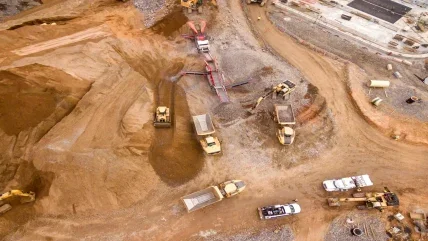
Critical Elements Lithium has received a support letter from a Canadian financial institution expressing interest in providing up to $115m in long-term debt financing for the development of its fully owned Rose lithium-tantalum project in Québec.
The Canadian mining firm’s proposed financing remains subject to due diligence and further discussions between lenders, their advisers, Critical Elements, and the company’s financial advisers.
Critical Elements CEO Jean-Sébastien Lavallée said: “We are very pleased with this additional indication of interest as it marks an important step towards advancing our financing package for the Rose Project.
“Management remains committed to securing an optimal outcome for the Rose Project’s financing and development. Investors can be assured of a continued interest from potential partners, and that the Corporation believes that the process is progressing positively.”
Located approximately 38km north of Nemaska, the Rose project is an open-pit lithium and tantalum mine.
The project plan includes an open-pit operation, a waste and tailings impoundment area, an industrial ore processing facility, and the potential for off-site concentrate transformation.
The mine is expected to produce around 4,500 tonnes of ore per day over a 17-year operational lifespan, with a total project duration of 26 years, including construction and site restoration phases.
In August 2023, Critical Elements released the results of a new feasibility study for the Rose project, outlining spodumene concentrate production.
The study estimated an after-tax internal rate of return (IRR) of 65.7% and an after-tax net present value (NPV) of $2.2bn for the Canadian lithium-tantalum project.
The Rose lithium-tantalum project has received key regulatory approvals.
It includes authorisation from the Federal Minister of Environment and Climate Change following a recommendation from the Joint Assessment Committee, which includes representatives from the Impact Assessment Agency of Canada and the Cree Nation Government.
Additionally, the Rose project has secured a Certificate of Authorisation under Québec’s Environment Quality Act, as well as a mining lease from the Québec Minister of Natural Resources and Forests.






